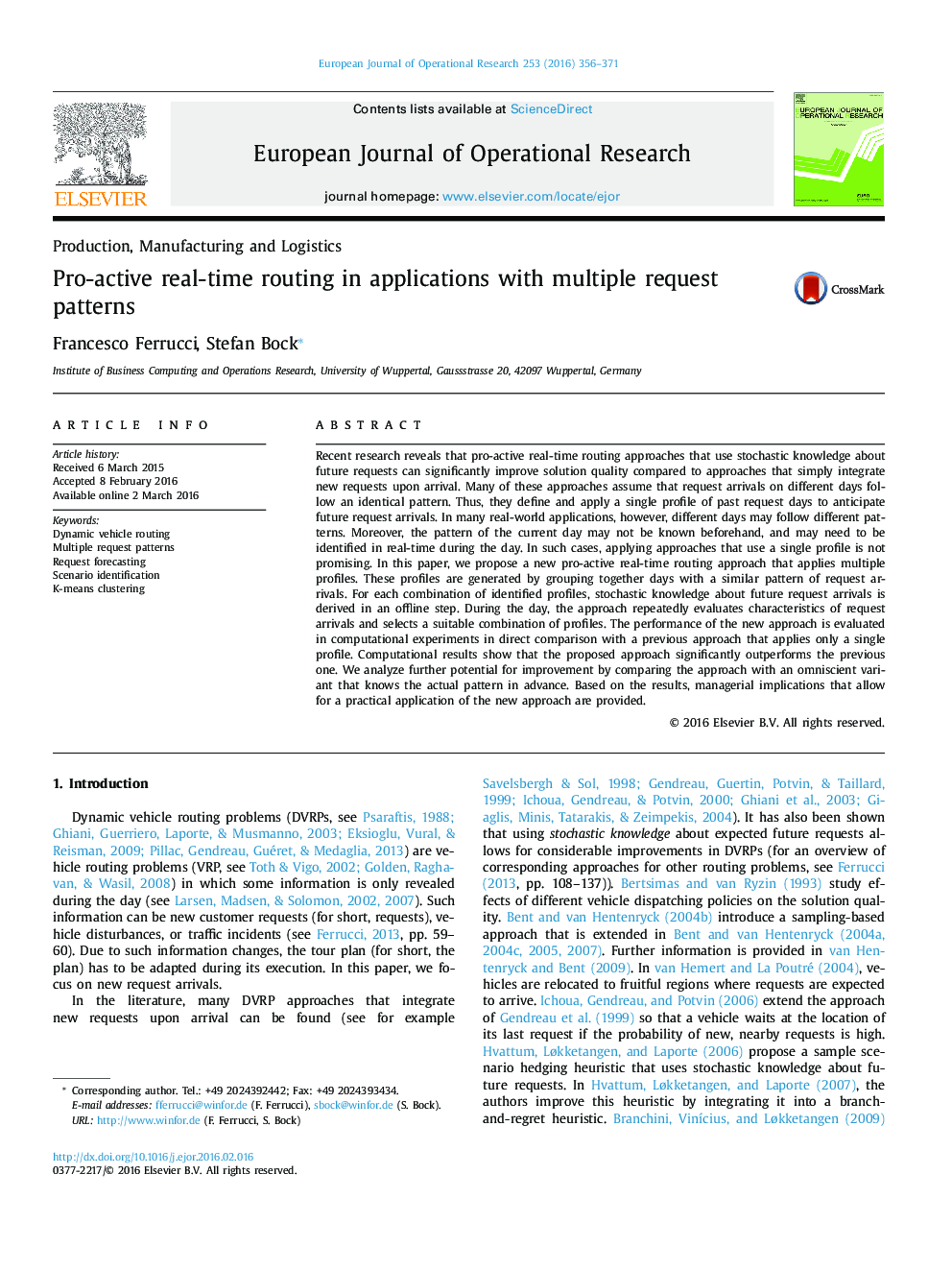| Article ID | Journal | Published Year | Pages | File Type |
|---|---|---|---|---|
| 479249 | European Journal of Operational Research | 2016 | 16 Pages |
•Automatic identification of request profiles in an offline step.•Generation of stochastic knowledge for all possible request profile combinations.•Real-time profile identification and dynamic adaptation of stochastic knowledge.•Evaluating the proposed approach using scenarios with different request patterns.•Managerial implications for practical parameterization.
Recent research reveals that pro-active real-time routing approaches that use stochastic knowledge about future requests can significantly improve solution quality compared to approaches that simply integrate new requests upon arrival. Many of these approaches assume that request arrivals on different days follow an identical pattern. Thus, they define and apply a single profile of past request days to anticipate future request arrivals. In many real-world applications, however, different days may follow different patterns. Moreover, the pattern of the current day may not be known beforehand, and may need to be identified in real-time during the day. In such cases, applying approaches that use a single profile is not promising. In this paper, we propose a new pro-active real-time routing approach that applies multiple profiles. These profiles are generated by grouping together days with a similar pattern of request arrivals. For each combination of identified profiles, stochastic knowledge about future request arrivals is derived in an offline step. During the day, the approach repeatedly evaluates characteristics of request arrivals and selects a suitable combination of profiles. The performance of the new approach is evaluated in computational experiments in direct comparison with a previous approach that applies only a single profile. Computational results show that the proposed approach significantly outperforms the previous one. We analyze further potential for improvement by comparing the approach with an omniscient variant that knows the actual pattern in advance. Based on the results, managerial implications that allow for a practical application of the new approach are provided.
